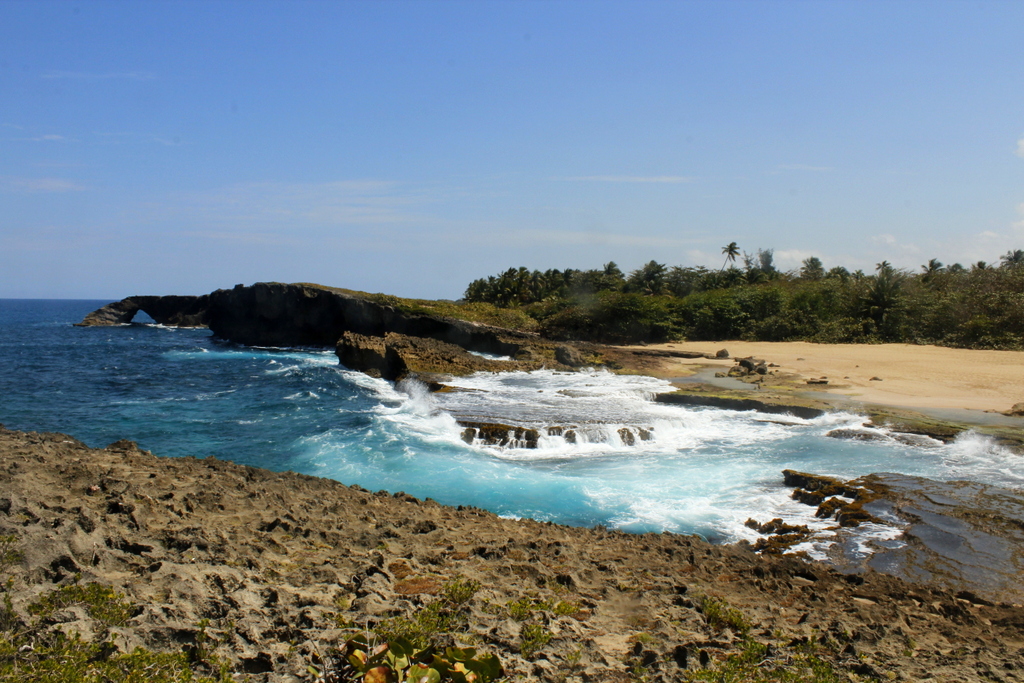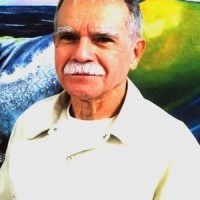Oscar López Rivera has been imprisoned in the United States for 32 years on charges of “seditious conspiracy” and “conspiracy to escape” for which he received a 70 year sentence. López Rivera, who is now 70, is a fighter for the independence of Puerto Rico, a colony of the United States.
Politicians, artists, and human rights activists across the political spectrum have united to ask the president of the United States, Barack Obama, to pardon López Rivera, who has been called the longest held political prisoner in the western hemisphere. In 1999, U.S. President Bill Clinton offered him a pardon, which Oscar rejected because some of his imprisoned independentista comrades were not included in the presidential pardon. Internationally renowned human rights advocates have called for Oscar's release, such as the South African Anglican archbishop and Nobel Peace Prize, Desmond Tutu (see video), and the Guatemalan indigenous rights activist and Nobel Peace Prize Rigoberta Menchú.
Every Saturday, the Puerto Rican newspaper El Nuevo Día publishes the letters that Óscar López Rivera sends from prison to his granddaughter Karina, who he has only met through prison bars. Global Voices translator Kitty Garden translated his second letter [es] titled “Donde respira el mar”, published in El Nuevo Día on September 14, 2013.
To this date, 12 letters [es] have been published.

“I kept quiet and tried to concentrate on the sound of the waves, I closed my eyes and saw them breaking on Cueva del Indio,” Oscar López Rivera. Cueva del Indio, Arecibo, Puerto Rico. Photo by NomadicStateofMind, taken from Flickr under CC License BY-NC-ND 2.0.
Dear Karina. After my family, what I miss the most is the sea.
It has been 35 years since the last time I saw it. But I have painted it many times, both the Atlantic and the Caribbean, the smiling foam in Cabo Rojo, which is made of light mixed with salt.
For any Puerto Rican, living far from the sea is almost incomprehensible. It’s different when you know you are free to move anywhere and to travel to see it. It doesn’t matter if it is grey and cold. Even if you see the sea in a faraway country, you realize that it always starts again (as a poet once said), and that fish that drew close to your land may pass through this sea, bringing memories from over there.
I learned to swim from a very young age, I must have been about three years old. One of my father’s cousins, who lived with us and was like a big brother to me, used to take me to the beach where he swam with his friends, and would throw me into the water so that I would learn. Later, when I was at school, I used to escape with the other children to a nearby river. All this seems far away now.
Here in prison I have often felt nostalgic for the sea; filling my lungs with its smell; touching it and wetting my lips, but right away I realize that many years may have to pass before I can give myself that simple pleasure.
I always miss the sea, but I think I never needed it as much as when they transferred me from Marion prison in Illinois, to Florence, in Colorado. In Marion, I went out into the yard once a week, and from there I could see the trees, the birds… I heard the sounds of the train and the song of the cicadas. I would run over the earth and smell it. I could grab the grass and let the butterflies surround me. But in Florence all that came to an end.
Did you now that ADX, which is the maximum-security prison in Florence, is designed for the worst criminals in the United States and is considered the hardest and most impenetrable in the country? There the prisoners have no contact with each other, it’s a labyrinth of steel and concrete built to isolate and incapacitate. I was among the first men in this prison.
When I arrived, I was woken several times during the night, and for a long time I couldn’t sleep for more than 50 minutes at a time. There were only four prisoners in that ward, but one of them had a long history of mental problems, and he spent the night and day shouting obscenities, fighting his war against invisible enemies. We were almost always in the cells, we even had to eat in them. All the furniture was made of concrete and none of it could be moved. I didn’t understand how the neighbors in the town of Florence had accepted such an inhumane prison amongst then. But today the prison industry is one of the most powerful in the United States. It makes money, and that seems to be the only thing that matters.
In Florence, at night, the prisoners communicated through a kind of air vent that was close to the ceiling. You had to shout to make yourself heard, everyone shouted and it was very unnerving.
I kept quiet and tried to concentrate on the sound of the waves, I closed my eyes and saw them breaking on Cueva del Indio. The screams in the prison then started to fade. The sea rose and fell like a torso, transmitting its strength and its breath.
I know that some day I will spend a whole night on the coast, and I will wait until dawn begins to appear. Then I would like to do the same in Jayuya, to watch the sun rise over the mountains.
With this hope, in resistance and in struggle, your grandfather sends you a hug…








14 comments
Something
is terribly wrong with the Judicial system in the USA. A young man from
a wealthy family gets probation for killing 4 people with a car and
this man gets jailed for life for wanting independence for his country.
Yes he was offered a pardon but not the other men who were jailed with
him for the same reason. Puerto Ricans, the world, where are your
voices????
Let that man be free
Dear Partners,
Join The First Oscar – Mandela March in Puerto Rico
on Saturday, March 22, 2014, on the Abolition of Slavery Day, to peacefully
protest for the decolonization of Puerto Rico
and the release of our political prisoner Oscar López Rivera. It is the perfect day to protest the
enslavement of Puerto Rico by the government of the United
States.
We will march from the Roosevelt Avenue Urban Train Station
at 2 PM to the United States Court in Puerto Rico on Chardón Street
in Hato Rey.
If you belong to any particular group, feel free to bring
your flags and signs to our protest. We
want it to be a collective effort involving everyone who believes that
colonialism is a crime against humanity and a threat to world peace. We need to have as many people as possible,
because those who practice or accept colonialism don’t believe in justice for
all!
Un abrazo,
José
http://www.TodosUnidosDescolonizarPR.blogspot.com